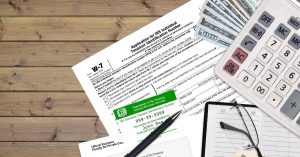When it comes to IRS audits, gas stations owners are often at a disadvantage. Not only is a great deal of their business transacted in cash — making it more difficult to accurately track — but with few employees, owners often don’t have the resources or time to maintain perfect financial records. Even when records are maintained, they are sometimes disorganized or done so sporadically that they are hard to decipher. Which is always why it’s good to speak with a tax attorney.
IRS and small business who deal in cash
However, regardless of the challenges faced by gas station owners, the IRS will not hesitate to audit them and other small business owners who deal primarily in cash. While these audits often involve several issues — ranging from payroll taxes to withholding sales and use tax, and everything in between — the examinations will often focus primarily on the following four issues:
- Gross receipts and sales: Documents the IRS will typically request/examine include all books, ledgers, journals and work paper the taxpayers (gas station owners) may have used when determining gross receipts, among other documents. For instance, they will also likely ask the taxpayers to provide all bank statements, deposit slips and any canceled checks associated with both their business and personal bank accounts for the 14-month audit period, which runs from the December prior to the audit year through the January following the audit year.
- Cash deposits: After identifying all of the bank accounts associated with the taxpayers’ names, the taxpayers will often be asked to provide an explanation of all cash deposits into these accounts, which means they may be required to provide supporting documentation as to the sources of these funds.
- Car and truck expenses: Taxpayers should also be ready to provide inspection slips, repair receipts or any other records that may show total mileage driven, especially if they are claiming business mileage. They may need to verify business mileage with log books and other records. Also, if they claimed actual expenses, invoices and canceled checks for these automobile expenses may be necessary.
- Travel expenses: Taxpayers may need to verify the number of nights away on business, which may include providing receipts or credit card statements for meals and lodging.
Make no mistake, the IRS doesn’t care if you don’t have an accounting degree. If you make even one mistake in your recordkeeping, you may face the possibility of substantial tax penalties.
As a small business owner, there are few things as frightening as receiving an IRS audit notice.
Even the most confident and meticulous book-keepers can instantly be filled with fear and doubt. The IRS pouring over financial records looking for potential problems is always stressful.
This is particularly true for owners who transact much of their business in cash. For example, gas station owners. Cash transactions can sometimes be more difficult to accurately track, meaning it is easier to make an accidental mistake.
However, despite your potential fears (yes, most people get very scared after they receive a letter from the IRS), you need to remain calm and take the appropriate steps.
With that in mind, below are four things a gas station owner should consider doing after receiving an IRS audit notice:
- Contact an attorney: Probably the most important thing you should do is call an experienced tax lawyer right away. An attorney can explain the letter from the IRS. They can also detail out the audit process and help make sure everything is handled properly.
- Determine what the IRS wants: Take the time to read the notice from the IRS and determine what they actually want. For instance, it may simply be an issue related to missing documentation. However, if you are not clear as to why you are being audited, you should ask for more information.
- Get your records together: After you figure out what the IRS is looking for, you will need to gather the information and documentation needed to back up your claims. This may include bank statements, receipts, mileage logs, etc. Only provide what is being requested and make sure to keep the original copies of the documents.
- Implement a better record-keeping system: Even though most small business owners don’t want to waste their valuable timekeeping records, it is a necessary evil. Sometimes it may be too late for it to help during a current audit though. Therefore; an improved record-keeping system will be beneficial should you ever be subjected to an IRS audit again.
Keep in mind, the information above is simply meant to serve as a suggestion of what steps may be helpful should you ever receive an IRS notice, and therefore should not be considered legal advice.
Simply put, every situation is different. Each set of circumstances may require a different response. This is why it is so very important to contact an experienced tax attorney right away.
Talk to a tax lawyer today
So what should you do if you are facing an IRS audit? Learn the answer to this question by reading our next blog. You’ve worked hard building your business, so you need to do everything possible to help protect it.








